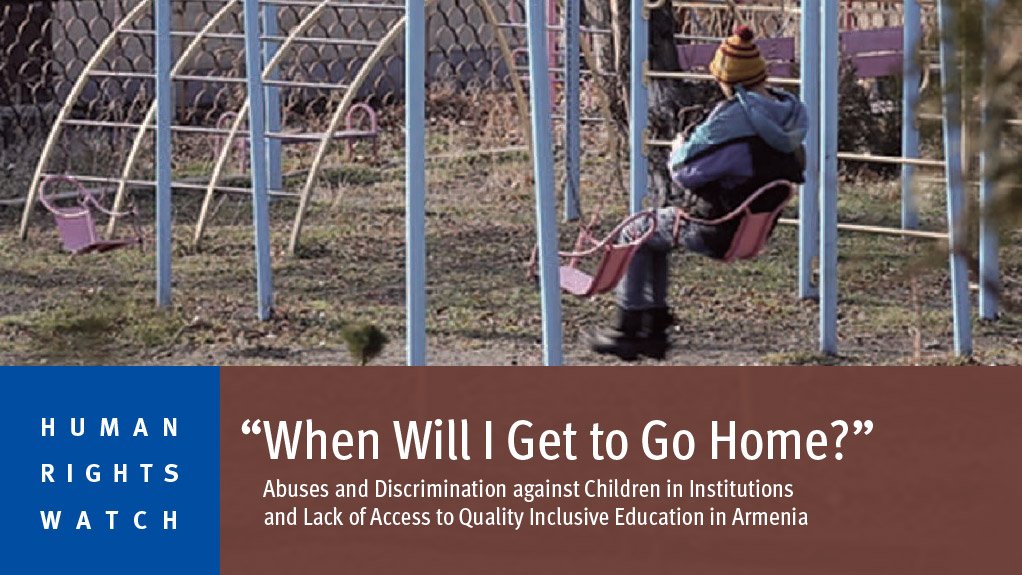- Abuses and Discrimination against Children in Institutions and Lack of Access to Quality Inclusive Education in Armenia3.89 MB
Gohar, sent her son Artur, now 13, to a residential special school for children with disabilities in Yerevan, 120 kilometers away from their home, when Artur was 7. While fighting back tears, Gohar explained the emotional difficulties for Artur when he was separated from his family:
He didn’t feel comfortable at the school and refused to eat. This was his protest. Whenever he came home, he ate normally. At the beginning, we brought him home every two weeks for two or three days. But the teacher said that we shouldn’t come so often because after he returned to school, he would be more emotional. We were told to take him only during the long school breaks. I am sad when I remember those four years. We knew that my son was having difficulties and didn’t want to stay at the school, but we felt that there was no other option.
Artur spent four years at the special school in Yerevan before his family enrolled him in a local special school. Artur struggled emotionally to make the transition. Gohar told Human Rights Watch about the emotional effects of his time away from his family:
Even after he came back home to live, he was afraid when we went out somewhere or took him to school. He thought we were leaving him. It took him time to understand that it’s not forever and that we will be coming back very soon.
Most children in Armenia in orphanages and other residential institutions end up in them because, like Artur, they have disabilities or due to poverty and other vulnerabilities that make it difficult for their families to care for their children. Indeed, 90 percent of children in residential care in Armenia have at least one living parent. While governments have obligations to provide for alternative care where a child is deprived of their own family environment, long-term institutional care is not a suitable alternative to family-based care for any child, whether with or without disabilities. Even the most well-resourced institutions cannot replace a family, and research by the United Nations Children’s Fund (UNICEF) and others has demonstrated that life in institutions can have serious consequences for children’s physical, cognitive, and emotional development.
The government of Armenia is undertaking some important reforms aimed at protecting the rights of children. These include reducing the number of children in state-run residential institutions and moving these children back to their families, with community-based services and other means to support families, a process known as deinstitutionalisation. An essential component of deinstitutionalisation is reform to the education system to expand opportunities for all children, including children with disabilities, to study in their communities.
However, Human Rights Watch is concerned that these reforms will fall short of reaching their potential to ensure the basic rights of all children in Armenia to live in the community and to enjoy a quality education. Human Rights Watch is particularly concerned that children with disabilities will be left behind and face further discrimination. Human Rights Watch research in 2016 indicates that the Armenian government needs to make much more effort to prioritize development of community-based alternatives to residential institutions, or risk a continued reliance on institutions, rather than ensuring that children, particularly children with disabilities, grow up in a family, as is their right.
Report by the Human Rights Watch
EMAIL THIS ARTICLE SAVE THIS ARTICLE ARTICLE ENQUIRY
To subscribe email subscriptions@creamermedia.co.za or click here
To advertise email advertising@creamermedia.co.za or click here











